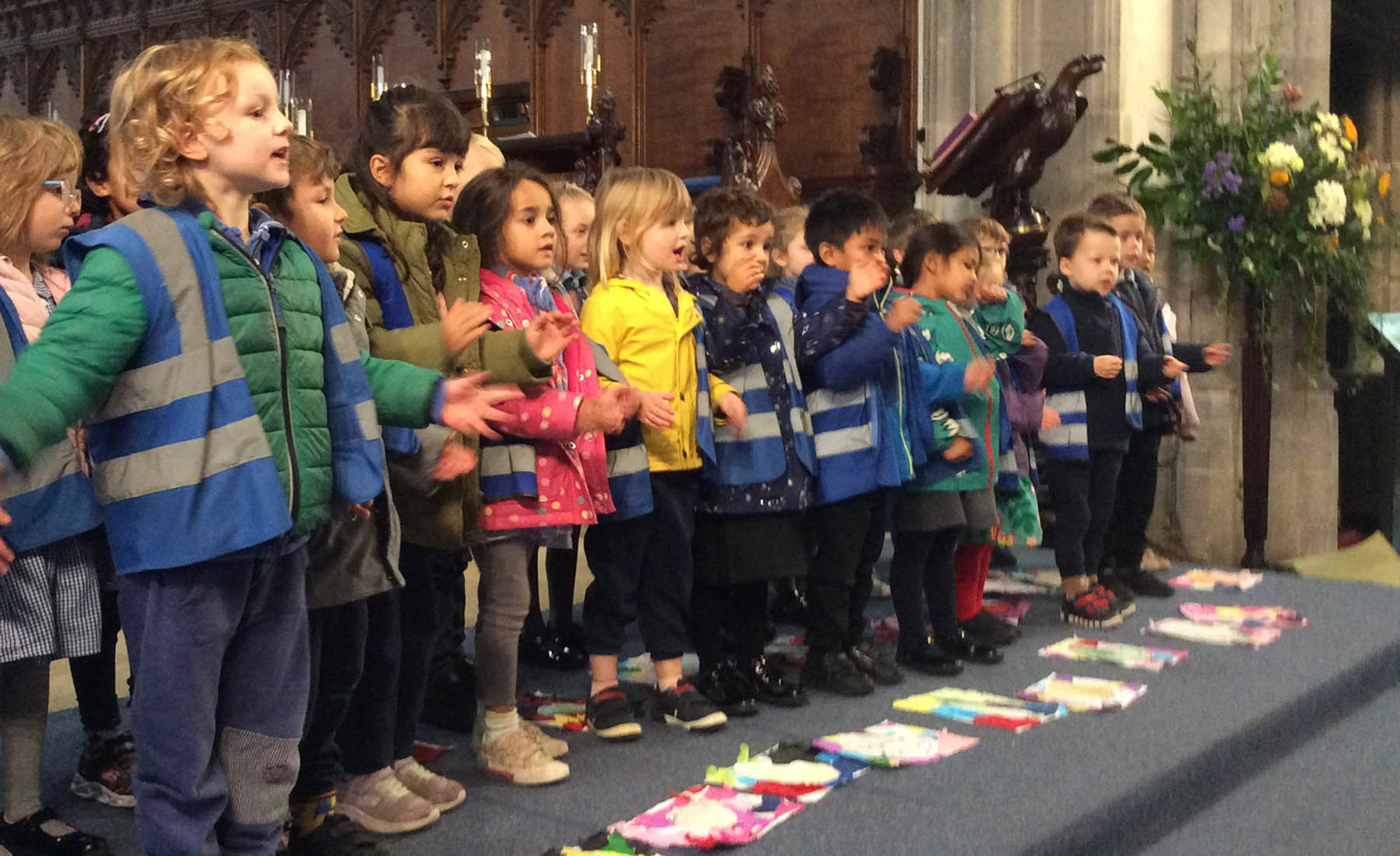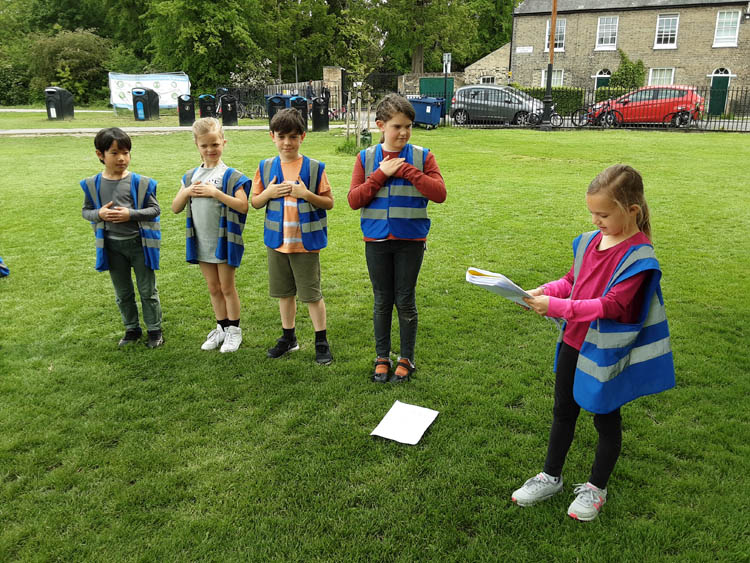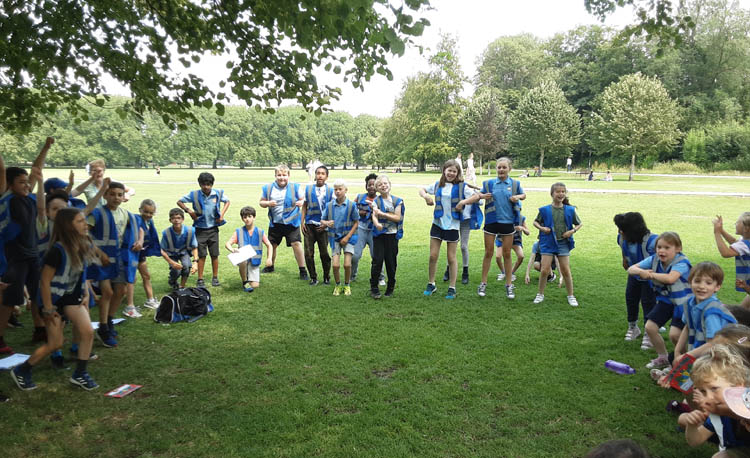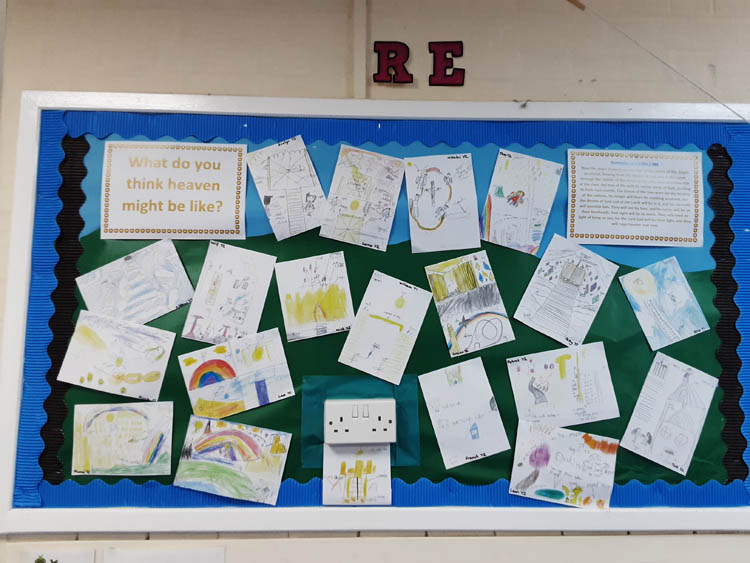
Christian Distinctiveness
Park Street Church of England Primary School is a voluntary-aided primary school in the city of Cambridge and falls within the Diocese of Ely. The Governors and the Headteacher promote a distinctive Christian character and seek to ensure that all who learn and work within the school are enabled to experience ‘life in all its fullness’ [John 10.10] – to be people ‘fully alive’ [St Irenaeus]. To this end, all of our work, our policies and our procedures seek to ensure that we honour God, we love our neighbour as ourselves, we do to others as we would have them do to us, we don’t judge others, and we seek to be good stewards of God’s creation.
These basic tenets of our Christian faith inform the things we value and promote: honesty and respect; friendship and kindness; learning and fun.
This means that all who seek safe haven within our learning and wider community should and must be treated with the dignity and respect that all who are created in God’s image should expect. We seek to be inclusive in practice and policy: a community that shines as a beacon of Christian welcome and hospitality.
We work in close partnership within our parish of St Clement’s, Cambridge and with The University Church of St Mary the Great (GSM), Cambridge. Priests serving in both parishes contribute to the life and worship of Park Street. These include: Reverend Canon Jutta Brueck (Vicar: GSM) and Reverend Andrew Day (Priest-in-Charge: St Clement’s).
The Church of England’s Vision for Education (2016) is deeply Christian, with Jesus’ promise of ‘life in all its fullness’ at its heart. In line with the Church of England’s role as the established Church, their vision is for the common good of the whole community.
- Educating for wisdom, knowledge and skills: enabling discipline, confidence and delight in seeking wisdom and knowledge, and developing talents in all areas of life.
- Educating for hope and aspiration: enabling healing, repair and renewal, coping wisely when things go wrong, opening horizons and guiding people into ways of fulfilling them.
- Educating for community and living well together: a core focus on relationships, participation in communities and the qualities of character that enable people to flourish together.
- Educating for dignity and respect: the basic principle of respect for the value and preciousness of each person, treating each person as a unique individual of inherent worth.
As a Church of England school, we offer an education that is distinctively Christian. Church schools are places where loving God and loving our neighbours, is lived out in the daily life of the school. Park Street Church of England Primary School aims to serve its community by providing an education of the highest quality within the context of Christian belief and practice. It encourages an understanding of the meaning and significance of faith and promotes Christian values through the experience it offers all of its pupils.
We are a diverse community that lives well together, emboldening all who engage with it to form meaningful relationships and to grasp ‘life in all its fullness’.
Our Vision
Our vision is based on the Parable of the Mustard Seed:
‘The Kingdom of Heaven is like a grain of mustard seed, which a man took, and sowed in his field; which indeed is smaller than all seeds but when it is grown, it is greater than the herbs and becomes a tree, so that the birds of the air come and lodge in its branches.’
[Mark 4. 30-32, Matthew13. 31-32, Luke 13. 18-19]
Park Street C of E Primary School is a small school that has a large effect on those who come here. We teach and we learn that small deeds and individual beings can have large and consequential effects on the world in which we live. The mustard seed of Park Street grows to become a sustaining, protecting and invigorating environment for all who ‘lodge’ here, before they travel onwards, taking all they have learned and experienced with them.
Our Values
Our Spirituality
Park Street C of E Primary School values the importance of the emotional and spiritual well being of our school community and encourages spiritual development through all areas of the curriculum and school life. Children have opportunities to reflect and have peaceful times during the school day, to revel in creation. Indeed, some acts of worship are conducted on Jesus Green. There is a quiet area outside for children personally to think, question, and explore. At our school the development of spirituality will be more than this. The children explore their spiritual feelings by considering how these make them feel and behave ‘inwards, outwards and upwards.’
- Inwards: through developing an awareness of how the world around us makes us feel inside. How we reflect on personal experiences and philosophical questions quietly in our hearts, in moments of self-reflection.
- Outwards: developing an awareness of how our spiritual feelings affect our behaviours towards others through reflecting on values such as respect, justice, compassion, community, empathy, and kindness, and issues that arise through discussion of these. Furthermore, providing children with opportunities to respond by encouraging them to put their ideas into action through courageous advocacy.
- Upwards: seeking connection with God or a ‘higher power’ – exploring spiritual feelings beyond human experience
These three aspects of Spirituality will be developed throughout our curriculum as well as through our RE curriculum and Collective Worship.
Religious Education
Religious Education is a core subject at our school and is taught once a week in every class.. It is integral to the learning of every child and informs all aspects of human and social development within the school, including in Relationships and Sex Education (RSE), Personal, Social, Health and Citizenship Education (PSHCE), and encourages inclusion and a sense of community and its development. The narratives of Christianity and those of other faiths are fundamental to all that we do.
As a Church School, although Christianity forms the major theme in Religious Education lessons, we have a duty to foster an accurate and increasing understanding of other religions and worldviews. As a result, our pupils gain a greater insight into the world in which they are growing up. They are also able to appreciate the faith and worldview of others and develop a deeper understanding of their own beliefs and practices. We aim to provide each child with the opportunity to achieve his or her potential regardless of economic and social background. We endeavour to do this by promoting the spiritual, moral, cultural, mental and physical development of children. Working alongside parents and the community, we aim to prepare children for a happy and successful future, creating lifelong learners. We want every child to leave our school knowing they are amazing, loved, valued, wonderful and unique, because God made them that way. We also teach children the personal qualities and characteristics that Jesus developed during his teaching. We encourage our children to be motivated, persistent, confident, resourceful, communicative and organised.
Park Street uses curricula and resources based on two leading Religious Education projects:
- Understanding Christianity
- The Emmanuel Project
Cambridge provides rich opportunity to explore religion in so many different expressions: Anglican (in a wide representation of traditions), Roman Catholic, Russian Orthodox (St Clement’s hosts the Russian Orthodox congregation of St Ephraim’s), the Quakers’ Meeting House is within a block. The University of Cambridge’s Jewish chaplaincy is within the parish bounds of St Clement’s. We have a beautiful new mosque in the city with an open and welcoming tradition. University chapels with choral traditions abound and Park Street has forged strong links with St John’s College and King’s College Schools. The staff, pupils and their parents are varied in their faith traditions and bring a wealth of opportunity to the our children to explore, to be curious about faith and religion.
Acts of Collective Worship
We have daily acts of Collective Worship. The teachers, headteacher and local clergy lead most acts of worship; some are led by children. Children contribute to every act of worship through setting the worship table, reading, and responding and reflecting on the themes and values discussed.
Choral worship takes place on Wednesdays, Achievement worship, with a distinctive Christian flavour, occurs on Fridays.
Celebration Worship also takes place at various times in both Great St Mary’s and St Clement’s, for the major Christian festivals: Christmas Carol Service, Easter Service, Harvest, end-of-term services, and Year 6 Leavers’ Service have all be held in Great St Mary’s. Eucharistic development will occur in smaller groups in St Clement’s. Parents, grandparents, siblings and Governors join us on these occasions. The children very much enjoy going into church and when permitted parents, carers and other family members join too.
Classrooms and Display
There is an expectation that all classes have displays pertaining to the Christian ethos of our school, with the values stated explicitly and the children taught about why those values underpin all we do. There are reflection spaces and resources supporting religious, spiritual and well-being development.












